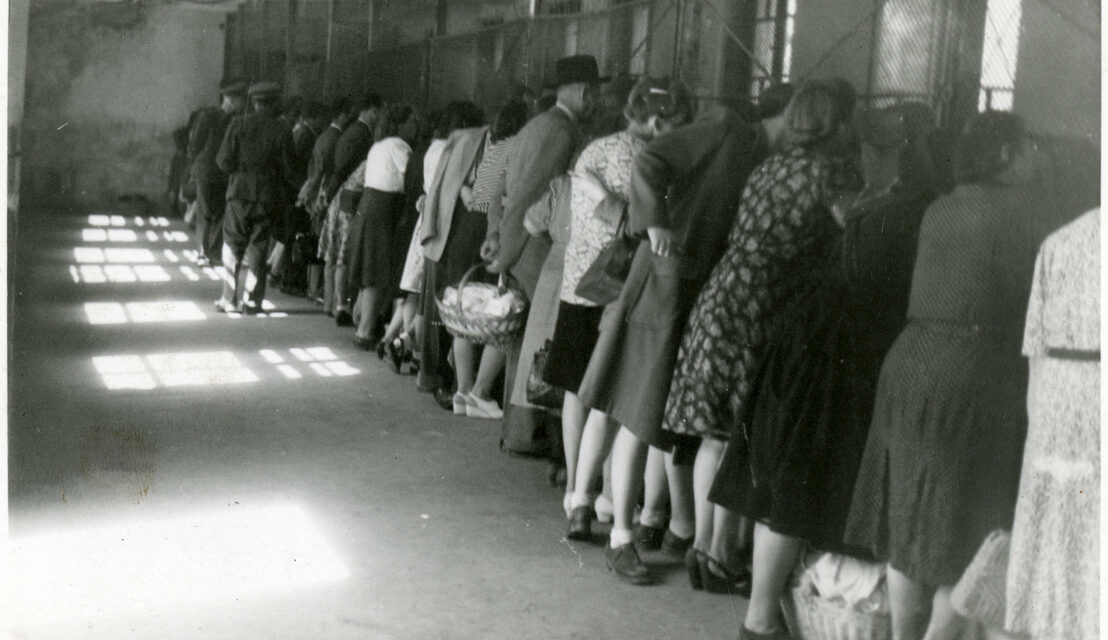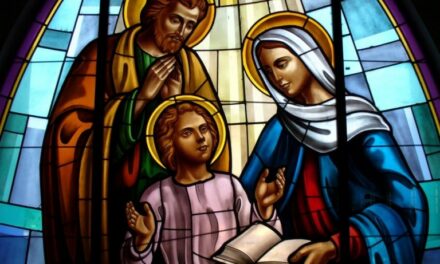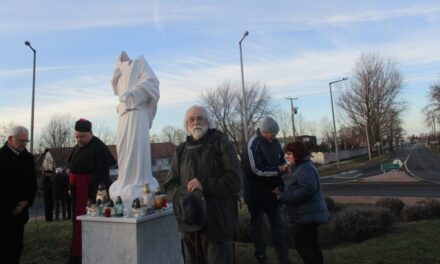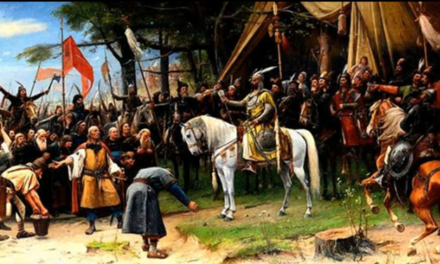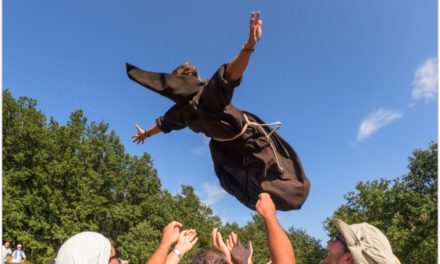The work of the Civil Justice Committee, founded by CÖF-CÖKA, basically involves the presentation of crimes committed during communism that have not yet been investigated and thus remained without consequences. The least explored area is the campaign against Christian priests, nuns, and even ordinary believers. The communists knew well that the community of religious people was the most dangerous for their anti-human utopia, so it is understandable that intimidation and even physical abuse "fit in" with their action against the clerical reaction. Zoltán Osztie's analysis reveals these crimes.
In the following lines, we are talking about those members of the religious order who, in recent decades, have also testified to the authorities about their apostolic vocation. As we know , Mária Ward built the spirituality of our Institute on the rules of St. Ignatius of Loyola In this constitution, St. Ignatius presents the suffering Christ before us and strongly calls us to desire to wear his robes and insignia - that is, to welcome humiliations, false accusations and persecutions with joy.
Mária Ward's sensitive soul understood the true meaning of these words and passed them on to her sisters as a precious legacy. Our monastic education is therefore primarily aimed at understanding the mystery of the cross. God gives this grace to everyone in different ways according to His inscrutable will. In the 1950s, 1960s, and 1970s, Hungarian monks and families alike had plenty of opportunities to walk this path of Christian destiny, and many had to publicly testify to their faith. Our Institute was no exception. The most intensively harassed persons were those about whom the following data survived, as well as their superiors and direct associates. Young religious sisters and committed young women living in the world. In addition to them, many of our fellow monks were religious with families or in parishes. They risked just like that and endured a lot of anxiety, but the Lord protected them from a greater conflict.
Borbála M. Czigány and her sister Magdolna
After the dispersal, several of our religious brothers returned to their parents' house. Borbála M. Czigány and his sister Magdolna Lajosmizsé went to a settlement near Kecskemét. They worked diligently alongside their mother and carefully avoided all attention.
They were sitting at the table at noon on July 2, 1952, when they were served with a summons from the local police station for that afternoon. "It's only a matter of minutes," they added. Those few minutes turned into a bitter thirteen months. They appeared in the official room just as they were, in light summer clothes, without handbags. The local police were a little confused at first, since everyone in the village knew everyone - but then the situation became more and more suspicious. First, they washed the windows there, then told them that they would have to spend the night inside, as they would be escorted to Kecskemét early in the morning. In the meantime, the two Sisters of the Heart of Jesus who lived in the village were also invited, so the four of them spent the night on a wooden bench without a backrest. They had no idea why they were in this situation.
In the morning, they were indeed taken to Kecskemét, where they were kept in detention for three weeks. The accusation was related to enrollment in religious education: however, this was a false reason, since they did not take part in the clever action organized by the village priest - in fact, they did not even know about it.
During this period , the enemies of the church still believed that religiosity could be eradicated and religious education could be abolished with their prohibition, intimidation, and fire and iron. The school director in Lajosmiz also thought the same way - or was fueled by individual ambitions - because he made the implementation of the officially issued religious education and enrollment decree difficult in every way. It is worth recalling this case.
The requirement was that one parent had to appear at the school and bring with them a written statement from the other parent explicitly requesting religious instruction. The time was given by the school principal: on the indicated day from 10 am to 12 noon. He was surprised to find that all the mothers were already waiting in the corridor at 8 o'clock. It can be imagined that his temper built up in him. He made them wait until half past 11, and then came up with the impossible and illegal idea that the mothers should go home to get the children, so that they could also make a statement in person. At the same time, this also meant that they would not make it back to 12 and thus the registration would be missed. At that point, the women ran out of patience, grabbed a chair and attacked the director, forcing him to escape through the window.
He could not process this self-inflicted shame and looked for a scapegoat. He blamed the four nuns for agitating in favor of religious education - even though there was no mention of it. (The parish priest notified the families through the ministers: the children passed the news on to each other.)
The sisters were not told what the reason for their arrest was - and they made uncertain and unproven accusations, the essence of which was that their presence was not wanted in the village, and their work was needed by the state where they were sent. They were brought from Kecskemét to Pest, on the Mosoni road: from there they were sent to Transdanubia, near Perkáta, to a settlement called Beregkút, for forced labor. Everything we read, heard or saw on film about such camps was lived here. A hundred and fifty of them were crammed into a barn-like room. In winter and summer, with bunk beds and dirty blankets. Most of the prisoners were common criminals and only a few were political prisoners. The sisters tried to stay close to each other and formed a work team. In addition to the four Lajosmizsei, there were other nuns of the order. Ours remember some of the Salvator sisters. There was also a "count brigade", led by Júlia Andrássy and Countess Eszterházy. In all jobs, the two brigades won the prize, completing 160-170%. If one of them was very exhausted or sick, the others also worked for them.
They reached the workplace 4-5 km a day on a dirt road, in rain, mud and hot sun. Sometimes they were driven much further. It happened that in a huge storm, in the midst of incessant lightning, they stumbled along the way. The boots that were three or four sizes bigger broke their feet: it happened that an old sister was carried on the lap by the others, but they did not complain. Their fellow inmates loved them for their silent patience and willingness to help. There is a great need for calm and disciplined people in such a place, because an internal rebellion glows in the skinned nervous systems. The gunmen tried to prevent the rebellion by exhausting them to the point of torture. The method for this is waking up at night, lining up and standing guard outside, in ten-degree cold, for ten minutes to half an hour, several times a night. Moreover, at this time, everything in the sleeping area is thrown around, the bunk beds are disassembled, and the underwear soaked in the floor mats is thrown out the window every night. But one could also list the humiliations that our sisters and the others endured with complete reliance on God.
The work done was varied: quarrying gravel and masonry, carrying bricks with frozen fingers and the like. Their worst memory is stubble work in the hot summer, picking straws, tying sheaves without drinking water, from dawn to dusk. When the wagons appeared and the prisoners rushed towards them, they were disturbed and water was poured into the dust. The thin soup could not be eaten in the shade of the trees, only in the hot sun. Some had burns.
Evil and hatred are beyond comprehension! This is their hour, and that of the powers of darkness. One of the aristocratic ladies found a few grains of groundnut among the tendrils crawling in the dust and happily showed them. Then the sadistic guard ordered him to stand on half a leg and hold up the small bunch of fruit for an hour in the thirty-degree heat. After that, half of his leg became useless: he collapsed, but was pulled up.
One of our two sisters was very thin and weak. He got sick several times in the camp, so he was put in a regular prison for a while. His brother once contracted pleurisy while working as a bricklayer in icy winds, which was poorly diagnosed and untreated. This disease had long-lasting consequences.
Prayer strengthened them in every suffering. At the beginning of the camp, the parish priest from Perkáta could still visit them, and at that time they could receive the sacraments. They later found out about it and banned it. On one occasion, much later, an old, shriveled worker sought out one of our brothers by name and handed him a small matchbox. “The priest sends it,” he said. Of course it was the Eucharist. Our brother was happy to distribute it to the brigade.
The months passed: each season had its difficulties. Hopelessness was made bearable by complete reliance on God. They remember joint prayers, soft singing, and Christmas Eve celebrated with some green branches. They prepared for the fact that their ostracism might never end. In the end, at the end of July 1953, Imre Nagy, the camp was disbanded. The nuns were kept there: the freedmen said goodbye to them in tears. The sisters thought there was no escape for them. However, this restraint was a local overreach, and eventually they were allowed to leave. They remember the first hours of freedom with great joy.
Finally, I would like to mention a kind gesture. Recently - after so many years - they went to Imre Nagy's grave in plot 301 and placed a small wreath on it. These two sisters of ours suffered torture simply because of their monastic status.
We believe that their suffering benefited the entire community and radiated strength to those who came after them.
(to be continued)
Author: Zoltán Osztie
(Cover illustration: Hungarian National Museum)

